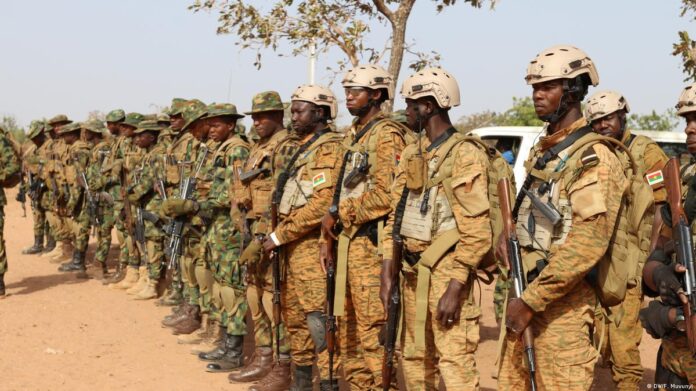Authors: Major General (retired) Marcus Hicks, Kyle Atwell, and Dan Collini
Affiliation: US Air Force (retired Major General) and former Commander of US Special Operations Command, Africa, 2017 to 2019/ US Army (active-duty), PhD student at the School of Public and International Affairs at Princeton University/ US Army (active-duty, Officer)
Organization/Publisher: Foreign Affairs
Date/Place: March 4, 2021/ USA
Type of Literature: Journal Article
Word Count: 2360
Link: https://www.foreignaffairs.com/articles/africa/2021-03-04/great-power-competition-coming-africa
Keywords: Africa, US Strategy, Regional Strategy, Partner of Choice, and the Great Power Competition
Brief:
The authors call upon the Biden administration to attach importance to Africa, which in their view will become one of the important theaters of the great-power competition contrary to what many think, especially after the Obama administration announced the pivot towards the East. The Trump administration’s withdrawal of US forces and resources from Africa was part of a broader shift in US national security from counterterrorism to great-power competition. But the authors see this shifting away from Africa, in the context of policy “optimization”, as instead a policy of “disengagement” from Africa. In order to win this great competition, the Biden administration will have to think regionally towards Africa; that is, it will have to deal with a set of regions there rather than dealing with each country separately. The article is divided into three parts. The first part explains the features of the ongoing great-power competition in Africa. It discusses mainly the increasing activity of Russia and China in Africa while the US is retreating there. Russia, for example, has signed military deals with 19 countries since 2014 and has become the largest supplier of weapons on the continent. It is beginning to establish a new naval base in Port Sudan on the Red Sea, coinciding with Washington’s announcement of its withdrawal from Somalia in December 2020, and Russia’s mercenary companies, including the Wagner Group, are active over almost all the continent. China, also, established its first base in Djibouti in 2017, spending huge sums on infrastructure projects to secure access to resources and buy votes in international organizations such as the UN. It also promotes its “authoritarian bureaucratic” regime as a model for African leaders who seek to diversify their economies without allowing democratic reforms. It is helped by its attractive loans, its non-interference in the internal affairs of these countries (human rights files, corruption, etc). The quest to foster influence will turn the continent into a theater for great-power competition and open it up to proxy wars, so Washington should be prepared for this despite its unwillingness to become embroiled in Africa’s wars during this era. However, the US cannot simply withdraw from Africa and leave its “interests” exposed. Rebel movements, political instability, and autocracies are still factors that threaten American companies and commercial interests, as well as the security of partners, especially that some of these movements have relations with international non-state actors, i.e. Al Qaeda and ISIS, which are both active across the border, and which have recently carried out attacks against prominent Western targets in Algeria, Burkina Faso, Mali, and others. These groups also cause political and economic crises within African countries. Therefore, the US can become “the partner of choice” for the African countries by providing sustainable and effective assistance, solving the roots of their crises, and winning them to their side before competitors precede it. The second part explains the current American approach to Africa, in which ambassadors enjoy varying degrees of support, staff, and guidance, and each dealing with a particular country, but lacking the ability to look outside the borders of his/her host country to engage with regional organizations or address cross-border problems. Such an approach is bound to fail and even entrench the problems to be addressed, so the article calls for an alternative strategy that is transnational in nature in order to weaken rebel groups and address the roots of instability. Such an approach would make Washington a reliable partner for the countries of the continent. Part three details the nature of this alternative approach, arguing that Africa’s needs are too diverse and complex to be addressed by a single strategy. In fact, the US does not need a comprehensive continental strategy but rather one designed for specific regions, or what the article calls a “regional strategy.” African countries are pursuing such a strategy, similar to the creation of five African countries “the G5 Sahel group” to coordinate military activities, enable cross-border joint operations, among others. There are similar coordination initiatives in the Horn of Africa, East Africa, and others. France also had a similar experience when it established the “Barkhane Task Force” to enhance security in West Africa and the Sahel. Based on the above, the authors call on Washington to develop similar regional strategies for the Sahel, Lake Chad region, the Horn of Africa, etc., each with clearly defined goals regardless of timetables for achieving them. The authors (all former and active-duty US military) suggested strategies are predictably based on military and non-military means aimed at “improving governance and security” and addressing the roots of extremism, failing to recognize that military interventions fuel extremism. They also call for the revitalization of the US Agency for International Development (USAID) and other similar agencies and to give regional officials greater authority and support from the President to effectively coordinate the various instruments of American power at their disposal. The increase of Russian and Chinese activity in Africa requires the United States to engage deeply in the continent’s affairs, otherwise, its opponents will gain an advantage there where opportunities and risks are expected to grow in the coming decades.
By: Djallel Khechib, CIGA Senior Research Associate




